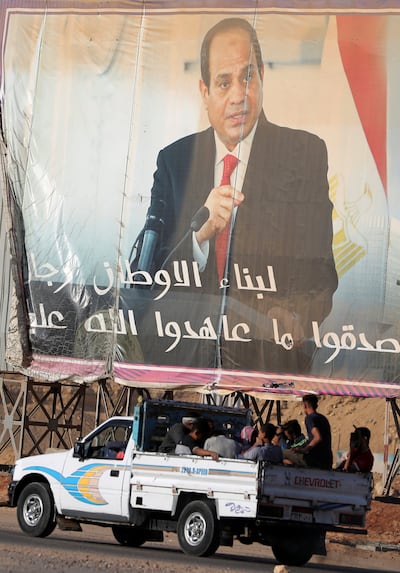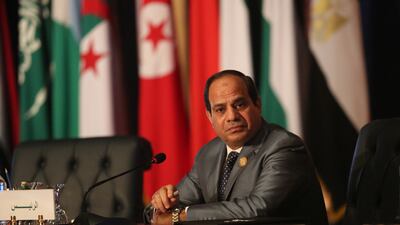Egypt’s president said on Tuesday the price of bread must be increased, a move that triggered deadly riots in the past.
“It’s time to raise the price of the five-piaster loaf of bread,” President Abdel Fatah El Sisi said, reassuring people the increase would not be significant.
The price of the heavily subsidised staple has long been a politically-sensitive issue in Egypt, where a government attempt to remove the subsidy in 1977 led to riots that forced the then-president Anwar Sadat to send the army into the streets of Cairo and other major cities.
Balady, the local name for a flat loaf, sells for 0.05 pounds ($0.03), a fraction of its actual cost of 0.60-0.65 pounds apiece. It is available at that subsidised price only to the 60 million people in Egypt who hold government-issued ration cards. Better and larger varieties are available for up to 0.50 pounds.
“Some might say 'leave this to the prime minister or the minister of supplies'," Mr El Sisi said. "But, no, this one is on me and I do that before my country and my people."
“It’s incredible that 20 loaves of bread are bought for the price of a single cigarette. This must stop.”

Mr El Sisi did not specify a timetable for the increase. Authorities tend to keep such dates under wraps to avoid hoarding or a run on the item.
He suggested that a partial lifting of bread subsidies could release funds to provide meals to pupils at state schools.
Egypt is the world's largest wheat importer. It buys 12 million tonnes a year and produces almost 9 million tonnes. It subsidises 50 billion pounds' worth of bread annually.
A former Army general who took office in 2014, Mr El Sisi is accustomed to making difficult decisions when it comes to overhauling an economy battered by the turmoil that engulfed the country for years after a 2011 uprising forced long-time ruler Hosni Mubarak to step down.
As part of an ambitious economic reform plan in 2016, Mr El Sisi began the gradual removal of state subsidies on fuel, electricity and drinking water. He introduced new taxes and raised charges on a wide range of state services, such as car licences, obtaining mobile telephone lines and passports.
The reforms have drawn accolades from bilateral donors and international financial institutions but they created significant hardships at home for the poor and middle classes. There were negligible protests in response to some of the price increases, all of which were dealt with swiftly by police.


